The tech industry is largely a man’s world, and a white man’s world at that. According to this National Center For Women & Information Technology study, women of color made up only about 11% of the computing and mathematical workforce in 2019, with Black women only comprising 3% of the total. These numbers are changing for the better, albeit slowly. And if we want to change the face of the Silicon Valley archetype, representation is imperative.
So we’re peeling back the curtain on what it really means to be a woman of color in tech. We talked to six Black women — from a marketing manager at Instagram to a privacy manager at Google — about how they got started in tech, what advice they would give to other Black women looking to start in the industry, and what tech companies can do to make the industry more inclusive of women of color.
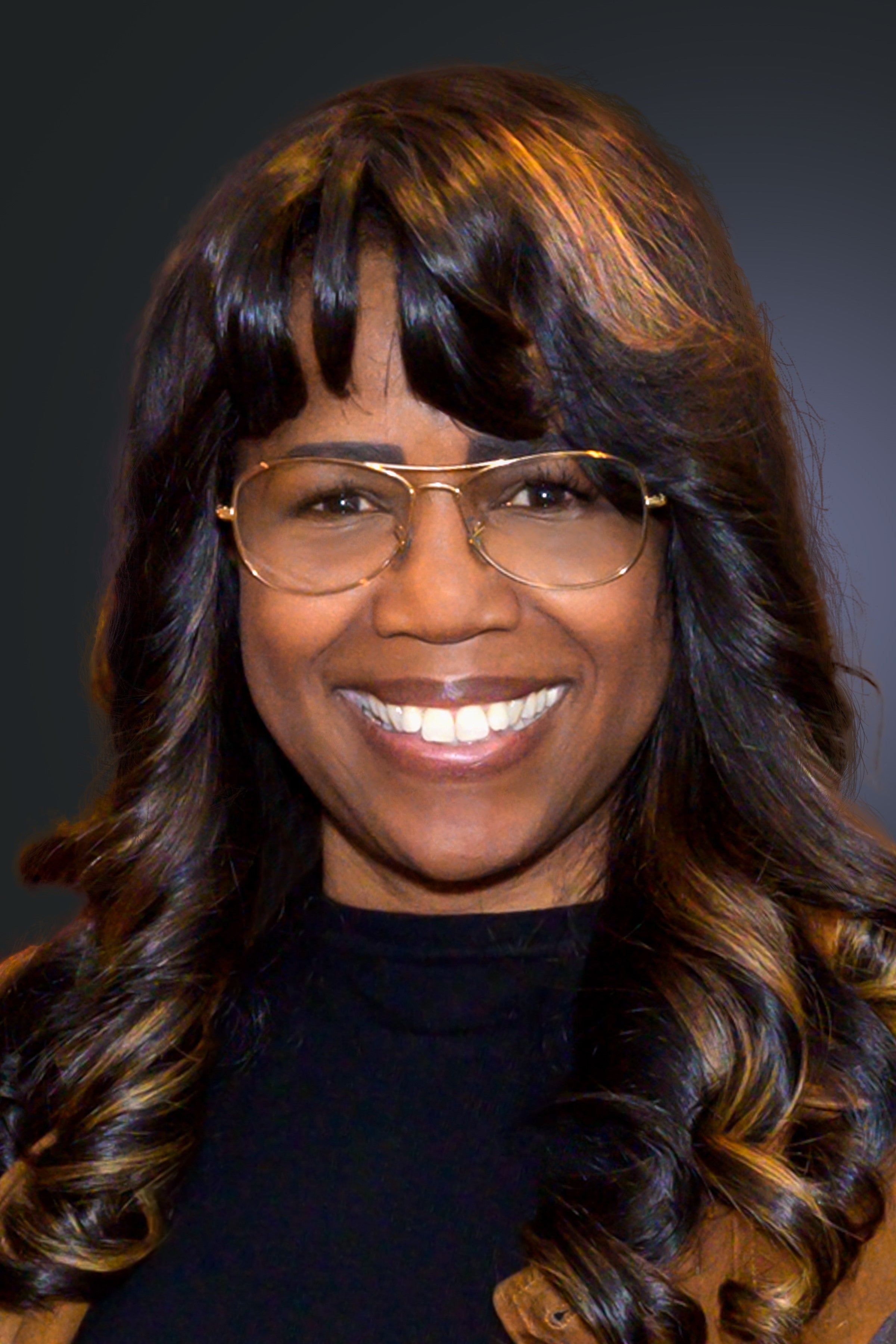
Olabisi (Bisi) Boyle, VP, Internet of Things (IoT) at Visa
As a kid, what did you want to be when you grew up?
Growing up, I always wanted to be an engineer and work in an area that would combine math and creativity; I enjoyed both. I wanted to MAKE things that were also artistically beautiful. I was always for both form and function.
What did you study in college, and what degree(s) do you have?
Master of Science in Mechanical Engineering from Columbia University; Bachelor of Science in Industrial Engineering from Columbia University; Bachelor of Science in Physics from Fordham University.
In a few sentences, describe your career trajectory.
I started my career at GTE (now Verizon) as an entry-level engineer. After I received my Master’s degree, I worked at IBM on the Power PC brand. Then I moved to the auto industry, where I found my passion in auto manufacturing and product development, working for Ford Motor Company (eight years) and Fiat Chrysler Automotive (12 years) as their Chief Engineer for the minivan platform. In 2017, I joined Visa to advance the strategy of bringing IoT payment experiences to the connected car.
How would you explain your day-to-day role at your current job?
I oversee activities across IoT verticals that include cities, automotive, home, and retail. My daily role includes managing teams across the globe to develop future payment experiences in connected devices we use every day – from TVs, fridges, and kiosks, to smart mirrors and cars. We work on solutions that can be deployed globally, and we find strategic partners that share our principles regarding customer experience and data security to commercialize the way we will pay in the future. I love the creativity I get to bring to work every day. One of our areas of focus right now is the connected car — we’re looking at how we can make payments both secure and seamless for the millions of consumers who drive every day!
What professional advice would you give to your younger self?
I would tell my younger self to ‘embrace the hustle in getting built up.’ This means showing up every day, persevering in hard times, responding versus reacting, and getting stuff done! Most importantly, I’d tell myself to enjoy the moments engaging with the things you do well — you will earn knowledge and confidence that is unfailing in challenging times. You will be able to thrive during change.
What advice would you give to other Black women who want to get into tech?
Get built up, gain knowledge, and even if others come at you with negativity, stand tall, because you are built up. You may be afraid, but just go on in anyway, you just might end up owning the place.
What can tech companies do to make the industry more inclusive of Black women and other people of color?
Tech companies must have empathy for the very real effects for under-represented minorities who do not feel a sense of belonging in a majority-centered space, and cannot pretend not to understand why some people may not feel included. Tech senior leaders need to be at the forefront of this movement, taking accountability to address diversity, inclusion, and a pipeline for under-represented minorities from entry-level to senior leadership roles. We win when we are in a state of mutual empathy — when everyone feels they belong.
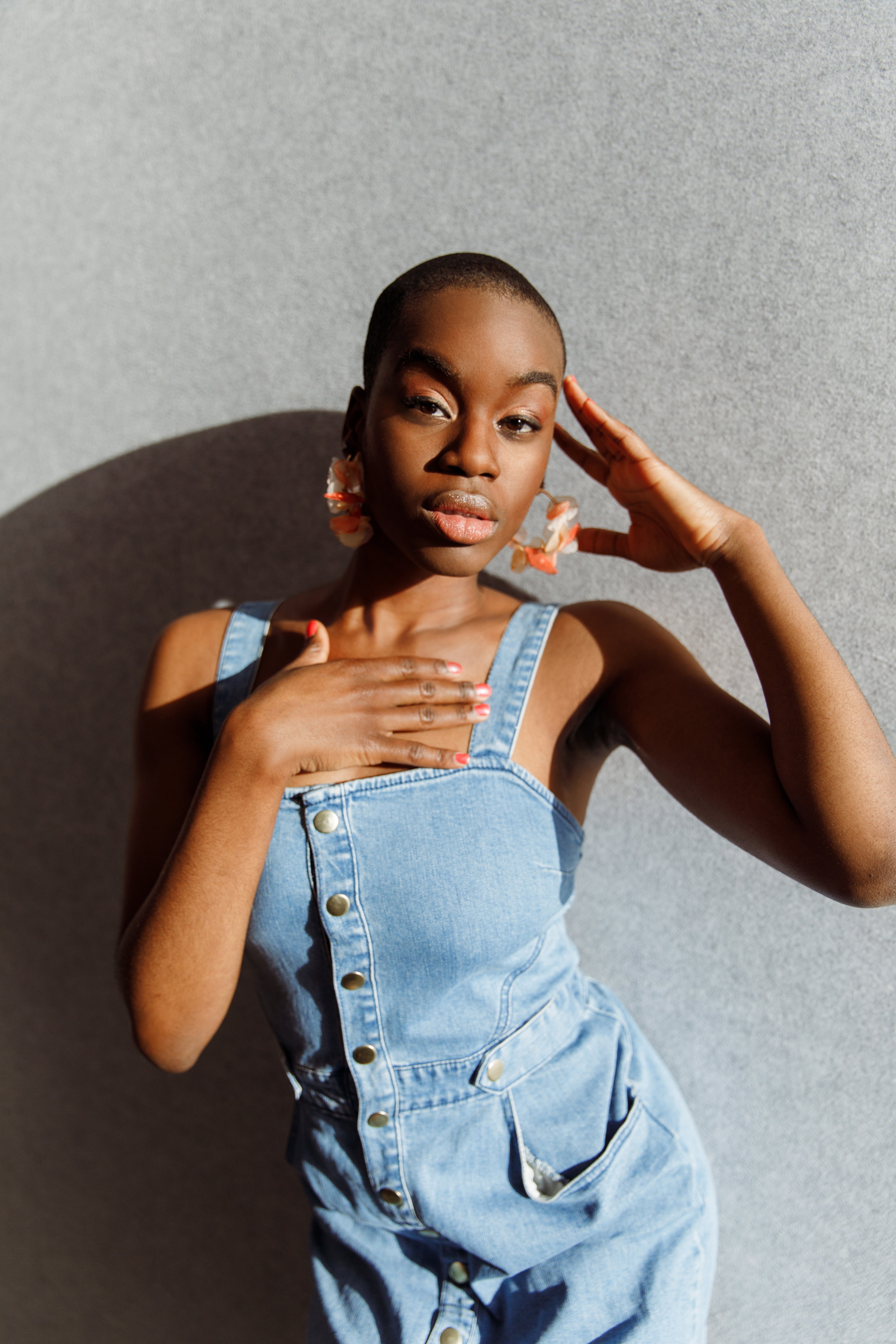
Joy Ofodu, Associate Brand Marketing Manager at Instagram
As a kid, what did you want to be when you grew up?
I wanted to be a dentist, a cowgirl, and an actress. I was going to figure out how to merge the three if I had to.
What did you study in college, and what degree(s) do you have?
I have a major degree in Communication from USC Annenberg and minors in Marketing from USC Marshall and Spanish from USC Dornsife. Studying all three programs simultaneously made me a strong speaker/writer, campaign strategy designer, and observer of underrepresented cultures.
In a few sentences, describe your career trajectory.
This is my first job in the workforce — supporting and leading global brand campaigns at Instagram. I’ve had internships in technology that involved content creation, photography, and editorial copywriting. My internships taught me how to create concise decks, drive teams toward a common goal, measure the success of digital campaigns, use digital communications to inspire people, and get in front of crowds to tell a story. I utilize all of those skills in my current role, and I was recently promoted to be an Associate Brand Marketing Manager!
How would you explain your day-to-day role at your current job?
I wake up every day to spread the word about a product I love and a company that puts people first, and demonstrate the unique value of Instagram to people who have never downloaded it. I also get to connect communities on the platform through programs like #shareblackstories, which is a program we launched to inspire and uplift the Black community in the U.S. that now has roots in the U.K. and Brazil. I’ve spent work days in Mexico overseeing a live production, in Atlanta on the ground at Afropunk, in San Francisco hosting a workshop for Black business owners – and at home with our rabbit and a good cup of tea. Some days I chat with 12 colleagues, community members or agency leads, other days with 70. Finally, I support our internal resource groups like Black @ Instagram in making Facebook and Instagram more inclusive of Black employees.
What professional advice would you give your younger self?
Put your health first. You can’t take care of the world if you don’t take care of you.
What advice would you give to other Black women who want to get into the tech world?
Don’t psych yourself out! If you could see yourself belonging here, you’re probably right. Believe in the magic that you have, and run with it.
What can tech companies do to make the industry more inclusive of Black women and other people of color?
Hire and champion them. Treat diversity like the business imperative it is. And once they’re hired, foster an environment with a zero-tolerance policy for microaggressions. Loudly celebrate the success of underrepresented employees, and don’t be afraid to host open conversations about what inclusion looks like within each organization, because it will differ. Hand the reigns over to the employees you’ve hired to lead the way, but make it the responsibility of all employees to promote diversity and inclusion. Analyze, validate, and improve the experience of the Black, Latinx, and indigenous people your company serves. Rinse, repeat!Photo Credit: @ToryWilliams
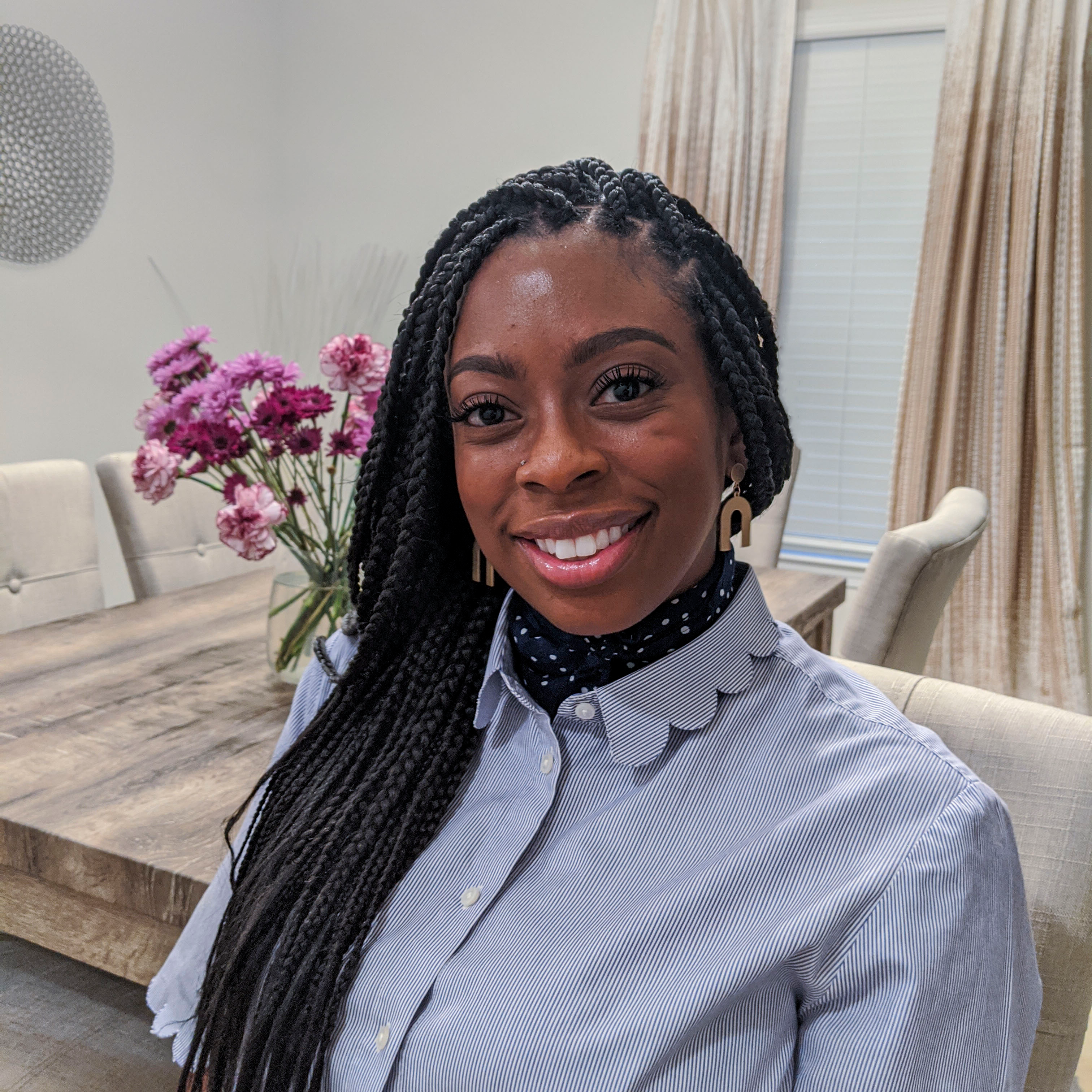
Blair Presley, Product Management Instructor at General Assembly & Product Management Coach at Blair Presley, LLC
As a kid, what did you want to be when you grew up?
Geez, this ranged incredibly. From as early as I could remember, I wanted to own a nail salon. In college, this evolved and I volleyed between owning a marketing firm and becoming a college professor. I suppose now I do a bit of both.
What did you study in college, and what degree(s) do you have?
I studied Marketing at Hampton University, and have since earned my MBA with concentrations in Marketing and Leadership from New York Institute of Technology. I am also a Certified Product Manager.
In a few sentences, describe your career trajectory.
Directly after undergrad, I started in B2B sales for an HVAC company who was gracious enough to fund my MBA education in full. After five years in sales, I started as an Associate Product Manager at a medical device company in Virginia, and then relocated to Atlanta as an Associate Product Manager in the animal health industry. I was recruited via LinkedIn to develop and lead a new product org at a building materials company, then transitioned to managing luxury kitchen faucets. After six years of product management, I started teaching new and aspiring product managers at General Assembly part-time while maintaining my full-time job.
How would you explain your day-to-day role at your current job?
I help new and aspiring Product Managers to get into the role and/or upskill. Product management requires a broad set of skills that can take many years to master. You are required to know your product, industry, and customers as well as you know your best friend. You’re also required to interface with a ton of people in a variety of different roles every day, and knowing how to authentically flex to those audiences can be demanding. Being a professional mentor to those who love the challenge as much as I do is incredibly gratifying; my best days are ones when I receive an email from a client or student exclaiming, “I got the job!”
What professional advice would you give your younger self?
Take risks. Start business(es) earlier; don’t wait until your thirties. Experiment. Don’t be afraid to ‘fail’ and try different businesses. Care not what your peers think of while you experiment.
What advice would you give to other Black women who want to get into the tech world?
Take space — and prepare. Don’t wait to apply at the moment that you think you’re ready; you’re probably ready a lot sooner than you think. That said, proactively fill knowledge gaps with educational programs, engage in communities like Black Women Talk Tech to expand your network and acumen.
What can tech companies do to make the industry more inclusive of Black women and other people of color?
Make space. Consider an internal audit of your teams and determine where there are opportunities to embrace additional diversity in background, culture, and opinion, as this helps to create a much richer product. Take an honest assessment of how a diverse team can help propel your organization — despite your fears.
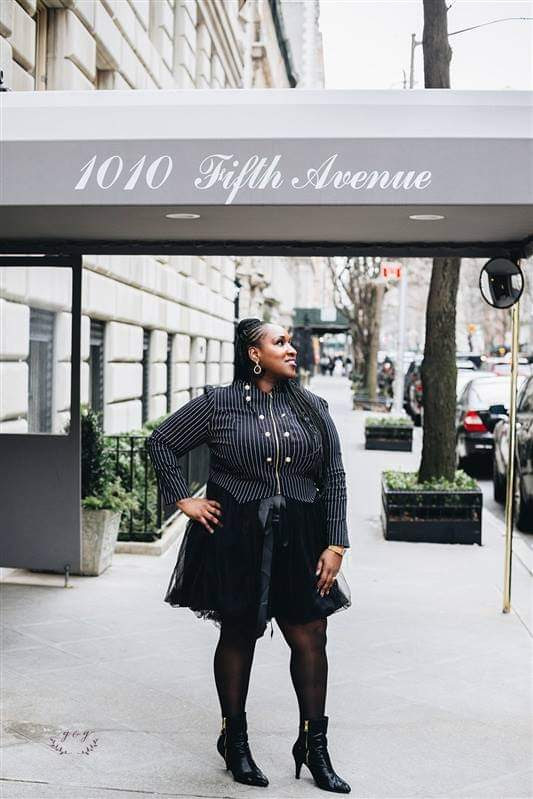
Michee Smith, Security & Privacy, Product Manager at Google
As a kid, what did you want to be when you grew up?
Initially, I thought that I was going to be a lawyer when I grew up. During my freshman year of high school, I joined the mock trial team to try out what it would be like to have a career as a lawyer. While I loved mock trial, I soon came to realize that becoming an attorney wouldn’t be a good fit for me. During that time, I saw the movie Hackers, which was the first time I had seen a woman (Angelina Jolie) cast as a computer geek. This really resonated with me and I began to explore what I would have to study to become a hacker. This is when I learned about the Computer Science major. I’d always done well in math and science, and since elementary school, I’d always been interested in computers. When I was offered the role in Security & Privacy at Google, it actually felt like I had come full circle to what sparked my interest in tech in the first place, the possibility to be a hacker.
What did you study in college, and what degree(s) do you have?I graduated with a BS in Computer Science from Rochester Institute of Technology. At RIT, you chose both a concentration in your major and a liberal arts concentration. For Computer Science, my concentration was Artificial Intelligence and my liberal arts concentration was Japanese. This led me to do a summer at Kanazawa Institute of Technology studying Japanese language and culture.
In a few sentences, describe your career trajectory.
I started at Microsoft right after college, and I stayed there for over 11 years. I tried out quite a few different roles. Initially, I started as a software engineer in test. In this role, I mostly coded and designed software that emulated our production partner systems to ensure we could meet quality, reliability, and scale targets before going into production.
Eventually, I realized that I wanted to be more upfront in the software lifecycle and moved to a role in Program Management. It put me closer to the customers in a way that I really enjoyed. During my time as a program manager in Windows, I started to volunteer as the security and privacy champion for my team. I worked closely with the central security and privacy teams to be trained in concepts like threat modeling, data collection and its impact on the privacy policy, and how to assess privacy risk.
I found a passion for privacy, as it’s such a nuanced, technical — and personal — topic. Then Google hired me to work as a product manager in privacy full time. I’ve been at Google for almost five years, building tools that help keep user and company data private, and providing transparency around how Google processes data from data access to data deletion.
How would you explain your day-to-day role at your current job?
I work to build privacy into everything we do at Google. I’ve worked on a bunch of interesting projects, including Google’s efforts to comply with the GDPR, Europe’s broad privacy regulations. Now, as a part of Google Cloud, I lead a team that builds products to make sure we are a trusted cloud for customers to put their data. I specialize in data deletion and retention, transparency reporting and tools to support data stewardship. The products I’m working on currently help companies easily track and control who has access to their data and when.
What professional advice would you give your younger self?
Other people might tell you “no,” but don’t let yourself be the one to say it. I’ve always had a belief in myself, which I credit in part to being raised in the Black church, a supportive and encouraging environment. But even so, it’s sometimes been hard to maintain that confidence. If I was to give my younger self advice it would be to always believe in yourself and maintain confidence. I regretted not taking certain opportunities in college, like collaborating with my chemistry professor on a biomedical computing research project, because I didn’t want to fail. I didn’t believe in myself enough. The first time someone asked me to speak at a conference, I had to be pushed. But after it was well-received, I realized I shouldn’t counsel myself out of doing anything.
What advice would you give to other Black women who want to get into the tech world?
I want people to know I’m not a unicorn — I’m not here because I’m necessarily special, but because I haven’t let rejection stop me. The advice that I would give to other Black women who want to get into the tech world is: Rejection isn’t a value judgment on you — persevere and believe in yourself. Continue to prepare yourself and the right opportunity will come.
One key way to get prepared is to keep three important relationships going at all times: mentor, mentee, peer. I always have those going at all times, whether it’s formal or informal, and I regularly speak at conferences and attend student events to foster new relationships.
What can tech companies do to make the industry more inclusive of Black women and other people of color?
Relationships and representation in tech really matter, especially when it comes to making the industry more inclusive of Black women and other people of color. Oftentimes, people of color don’t see people who look like us in these roles and on stages. There’s a sense of gratitude, belonging, and relief to seeing someone who looks like you. I think tech companies traditionally have been good with ground-up approaches to make the workplace more inclusive such as unconscious bias training, establishing principles around D&I, and creating recruiting programs to attract and prepare diverse talent to enter the tech workforce. However, I think there isn’t as much accountability in the incentive structure for tech company leadership, which I think is key to seeing real change.
Across tech, I am still hearing stories where people are being referred to as a “diversity hire” or they try to start a diversity initiative and it’s received with statements like “I want to hire the top talent” as if the top talent can’t be more diverse than the mainstream talent that exists. Hiring top talent and hiring diverse talent aren’t opposing goals but complimentary.
Often assertive Black women are labeled as “angry,” implying that their style of communication isn’t appropriate for the professional world, forcing them to real time translate their feedback into words that make others comfortable while others use similar assertive behaviors towards us without any negative connotation. These types of environments make it hard for Black women in tech to bring their whole self to work, but an inclusive environment that welcomes, respects, and includes different backgrounds goes a long way to help talent perform at their best.
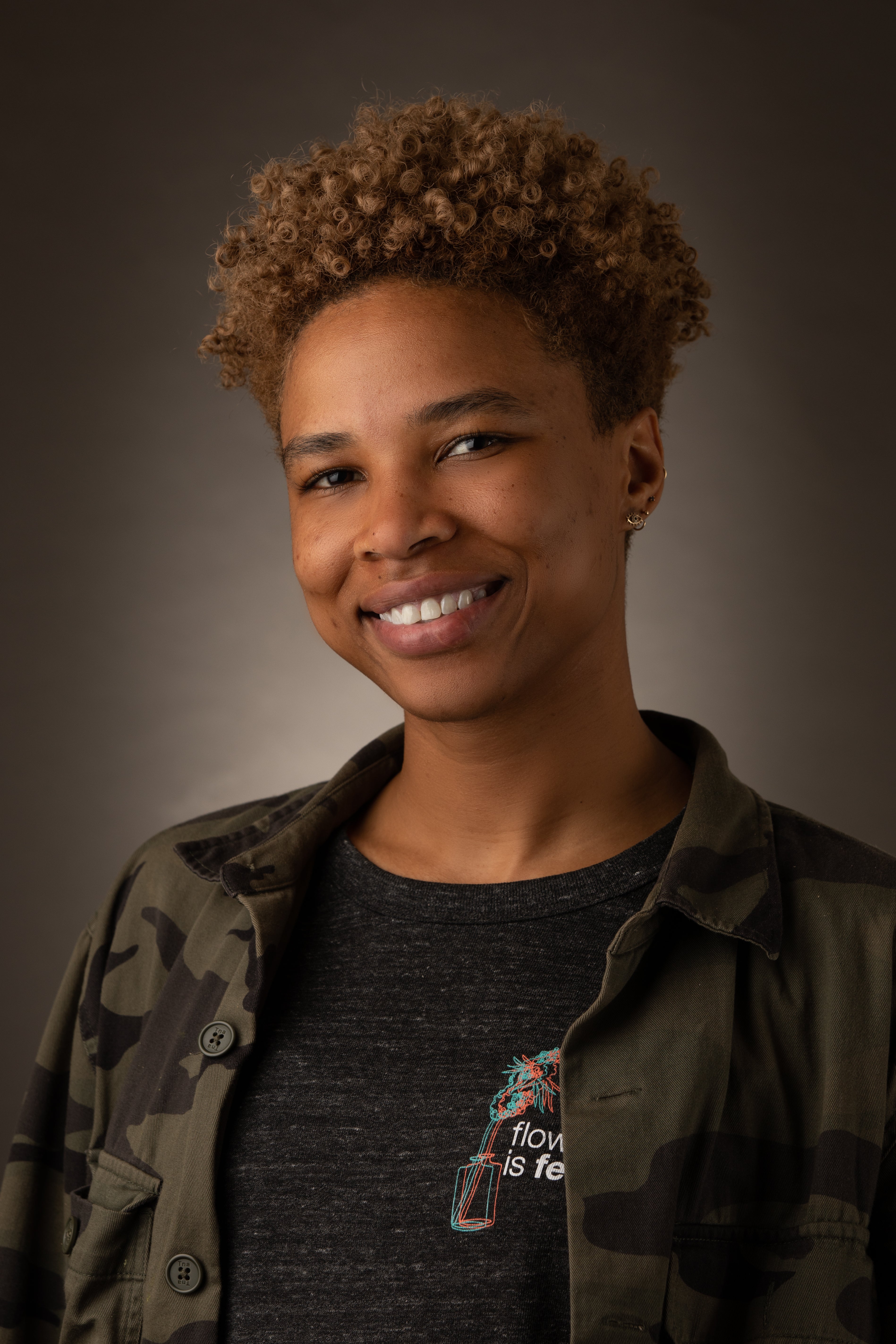
Jordan Coleman, Enterprise SaaS Sales Account Manager at Weedmaps
As a kid, what did you want to be when you grew up?
Growing up, I wanted to be a number of things, ranging from a certified scuba diving instructor to a physics teacher to a sports journalist. My mom was a data programmer and my dad built computers, so I grew up surrounded by tech, but didn’t envision a career in the space that early on.
What did you study in college, and what degree(s) do you have?
I earned a Bachelor of Arts & Sciences in Communications Studies and Corporate Strategy from Vanderbilt University, I took a couple CS electives during my undergraduate coursework, which sparked my interests in tech.
In a few sentences, describe your career trajectory.
After graduating college, I moved to Shanghai to work for an education consulting firm, where my primary role was to help students with aspirations of going to college in the U.S. curate dynamic admissions portfolios. I lived in Shanghai for a year before relocating to Seattle, where I worked as a media planner for a national cable company’s ad sales department. I learned pretty quickly that performance marketing and digital advertising piqued my interest more than choosing day parts for TV commercials; so I explored career options with more focus on digital marketing.
I then moved to Southern California for a digital sales role with NBCUniversal, where I planned and managed digital campaigns that ranged from brand integrations to editorial sponsorships across NBC’s Digital News platforms. I learned a lot about planning and performance marketing, but after two years, I was ready for an opportunity where I could make more of an impact. I’d considered moving back to Seattle before coming across an interesting role with Weedmaps. I was familiar with the platform as a user, and the prospect of working in such a dynamic industry piqued my interest. While I had some reservations about venturing my career into canna-tech, as Weedmaps sits at the intersection of two industries that struggle with fostering diverse and equitable environments, I was drawn to Weedmaps’ mission, which is to power a transparent and inclusive global cannabis economy.
It turned out that my experience was exactly what Weedmaps had been looking for in their efforts to continue moving forward and expanding! I’ve been at Weedmaps for about nine months now, the learning curve has been steep (getting familiar with learning the cannabis space and our SaaS platform felt like drinking water from a fire hydrant for the first few months), but I couldn’t be happier with my decision. Beyond my core responsibilities, I’ve also had the pleasure of assisting in the development of two Employee Resource Groups, Women of Weedmaps and WM Noir, both of which have goals of hiring qualified women and people of color to join our Weedmapsteam.
How would you explain your day-to-day role at your current job?
For context, Weedmaps is the largest technology company in the legal cannabis economy. Today, we’re building the operating system for the industry, with software that helps businesses thrive within the complex cannabis economy, and that is where I come in.
I work cross-departmentally to support the expansion efforts of multi-state cannabis companies. My day-to-day responsibilities include creating annual advertising proposals for their growing retail footprint, scheduling training on our platform for retail staff, creating sales collateral that highlights new features on our platform that streamline B2C advertising efforts for our clients (i.e. Online Orders, Point-of-Sale System), and connecting with Regional Marketing Managers to identify localized opportunities to incentivize Weedmaps users purchase intent. Multi-state cannabis operators (or Enterprise accounts, as we call them) have very unique operations, so I also spend a fair amount of time partnering with our Operations teams to identify processes that streamline their experience on our platform.
What professional advice would you give your younger self?
First, I’d say feel empowered rather than intimidated as the only Black woman in the room. My younger self often felt intimidated being in that position. But developing the confidence that I am where I’m supposed to be, based on the work I put in to develop my skills has been a rewarding process. Secondly, know your stuff, and don’t second guess yourself. For the better part of my early twenties I spent time being insecure about my unconventional professional experience. I didn’t have the opportunity to partake in internships in college because my basketball scholarship required me to be on campus essentially year-around. Then I moved abroad for a job that had nothing to do with digital marketing. I wouldn’t apply to jobs because I preemptively assumed I wasn’t what the company was looking for. I realize now that channeling that energy into a solution (i.e. utilizing online sources like Coursera to learn new skills, and finding time to meet with recruiters to get a better sense of what was missing from my skill set that companies were looking for) was far more productive and really helped to mitigate my insecurities. Lastly, lean into the relationships that push your limiting thoughts about yourself and challenge you to be better. Fortunately, I have a really solid group of women who inspire me to “aim higher” everyday that I’m super grateful for.
What advice would you give to other Black women who want to get into the tech world? I’d encourage self-study and encourage them to reach out to people within their network, who are working in the space they’re interested in. Offer to buy them coffee and pick their brains on what they like and what could be better about their current roles. Doing this I learned pretty quickly that there were roles and companies I thought I wanted to pursue, until getting a peak under the hood. I’d also encourage them to find time to attend conferences to network in their desired area of focus. Organizations like AfroTech and Black Women Talk Tech both bring together a dynamic group of black techies, start-ups and entrepreneurs.
What can tech companies do to make the industry more inclusive of Black women and other people of color?
The answer to this one is pretty simple — make a concerted effort to source qualified candidates from different backgrounds. If tech companies want to create an inclusive space rather than using diversity as an essential buzzword for politically-correct SEO, then tech recruiters should aim to source talent beyond America’s Top-25 PWIs; HR leads should create and leverage relationships with organizations that incubate and bring together diverse talent (a couple are linked above); and lastly, it’s going to require recruiters checking their biases, personalizing the hiring process and offering opportunities to passionate and qualified humans.
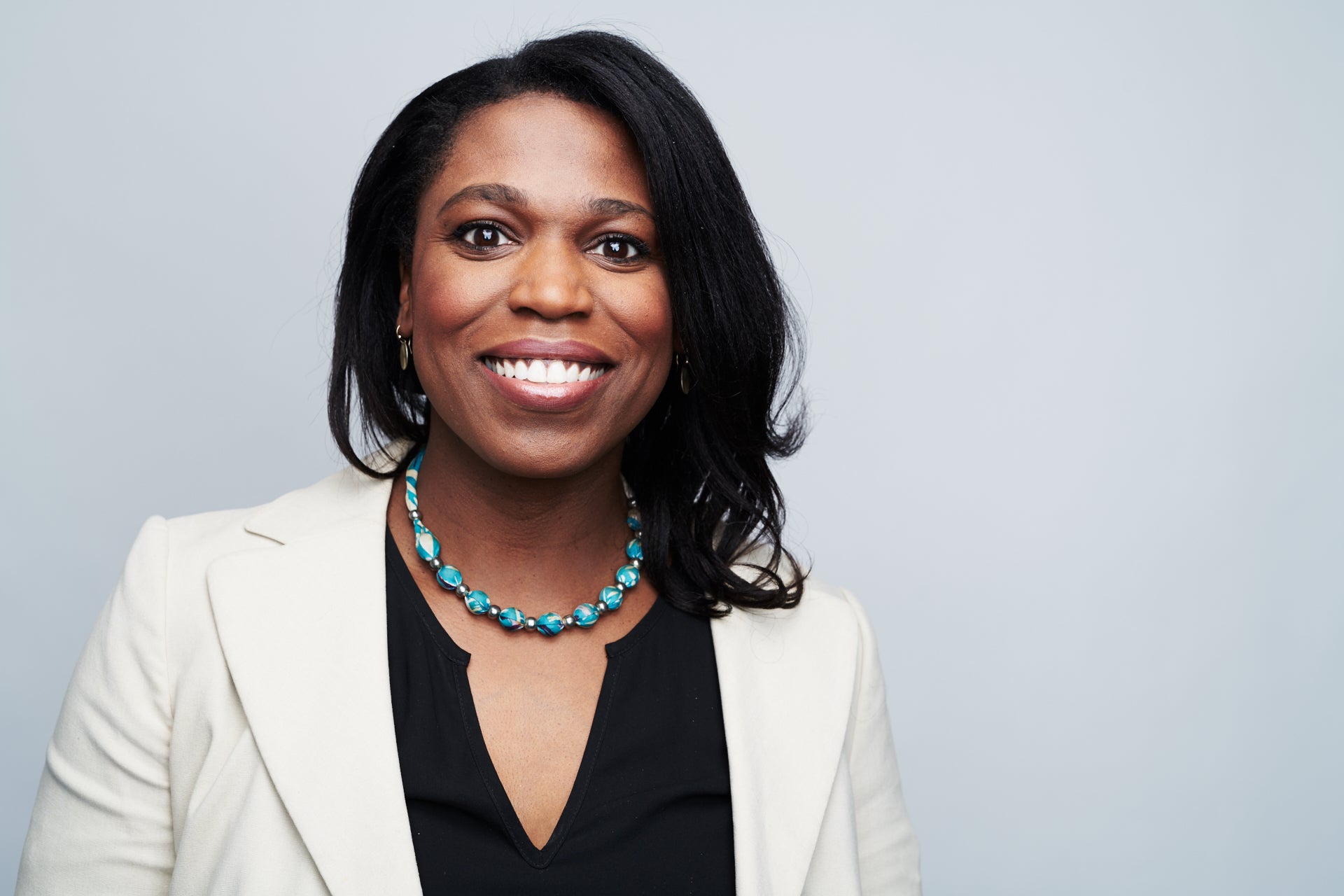
Payton Iheme, Public Policy Manager at Facebook
As a kid, what did you want to be when you grew up?
Growing up, I always wanted to be a zoologist or biologist. I was really drawn to working with animals and the research aspects of cataloging their behavior with each other and their environment.
What did you study in college, and what degree(s) do you have?
I studied communication technology and public relations at the University of Texas for undergrad and received a master’s degree in Government Policy from the George Washington University.
In a few sentences, describe your career trajectory.
I began my career in the U.S. Army, and have since spent more than 15 years on active duty — from being an officer in the Army’s Special Operations Command to currently a Lieutenant Colonel in the Army National Guard. I’ve also served as the Senior Policy Advisor for Communication Technology at the White House, and held various roles in Congress as a legislative liaison and specialized in defense, intelligence, and special access programs for Senate, Armed Services and Foreign Relations Committees. My wealth of experience in these various roles and passion for this work led me to taking on the role as public policy manager at Facebook.
How would you explain your day-to-day role at your current job?
As public policy manager, I focus on important policy issues on a range of topics — including key veteran and military policy — but ultimately I work closely on issues related to the Internet, digital economy/small business, counter terrorism, cybersecurity, data privacy, and partnerships. I also manage key veteran and military policy. I find that most of my day is devoted to either developing strategies for solving misunderstandings and building multiple opportunities for Facebook to explain its viewpoints, or bringing together people who hadn’t thought of working together on a shared goal. The exciting part of my job is to be able to provide value through helping to solve a community or government concern, while lifting up the amazing work of others. I am also on Facebook’s veterans community leadership team and I am the lead for the employee resource group in DC. I continue to serve as a LTC Colonel in the US Army National Guard, so it is an honor to contribute to the veteran community through my work at Facebook, as well.
What professional advice would you give your younger self?
To learn and recognize what the difference is between having a seat at the table, being allowed to speak at that table, and what it is like to be heard at that table. You can spend a lot of energy trying to prove that you deserve to be included, but once you are, you realize there are still many hurdles in your way before you can make truly meaningful impact. It’s important to understand this early in your career in order to help you invest more in implementing strategies “to be heard,” versus waiting for someone to allow you a seat at the table.
What advice would you give to other Black women who want to get into the tech world?
Reminder that you have persevered through so many obstacles and the tech industry needs your unique perspective and insight into how it can affect communities and help elevate everyone. Remember to be conscious of building with diversity in mind from the start, whether you are in the IT or Machine Learning industry or crafting policies that govern how a company makes decisions.
What can tech companies do to make the industry more inclusive of Black women and other people of color?
One of the main areas companies can improve on is recognizing that optimizing for a “good fit” or someone that “already has a lot in common” with current team members will inadvertently insert bias into hiring decisions and the types of organizations and projects a new employee gets to be involved in once hired. It’s important for companies to challenge their hiring managers to not lean on those types of indications during the interview process and to give opportunities to current employees that don’t fit the mold they are used to. Diversity is critical to our success at Facebook and we are all better off in a diverse, inclusive and more balanced world.
Like what you see? How about some more R29 goodness, right here?
9 Women-Led Companies You Can Support Right Now
8 Women In Tech On How They Got To Where They Are
Meet The Founders Of Black Women Talk Tech






